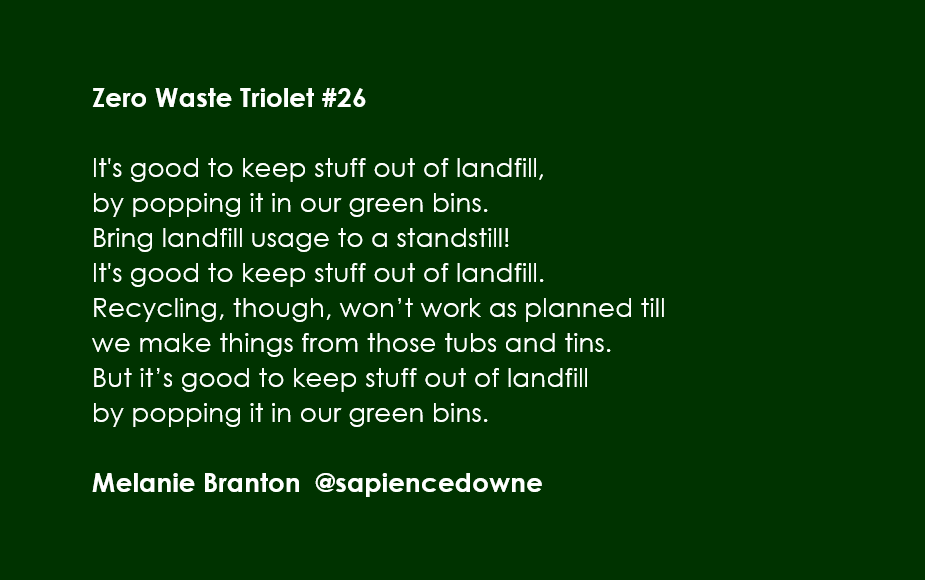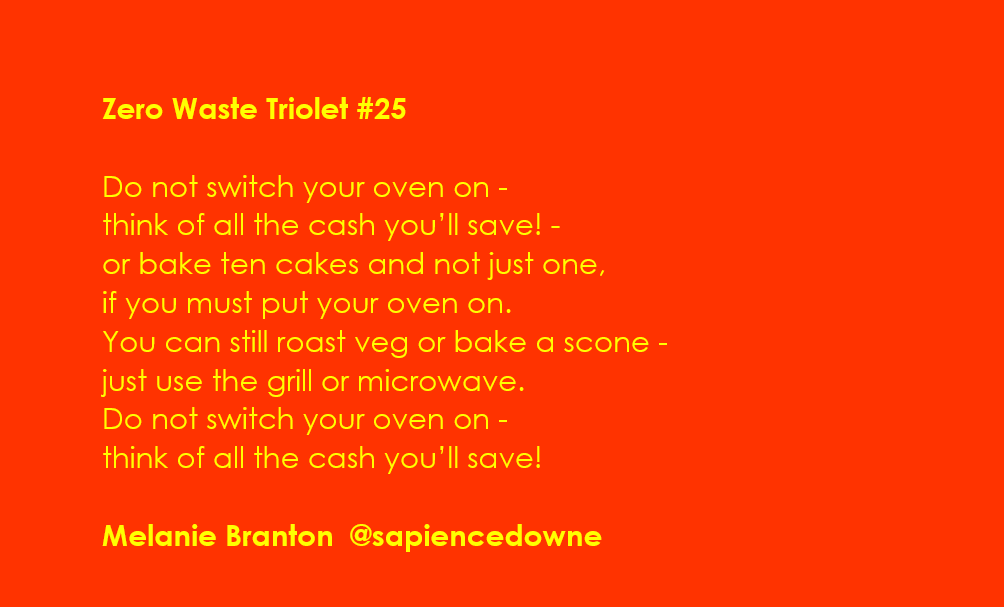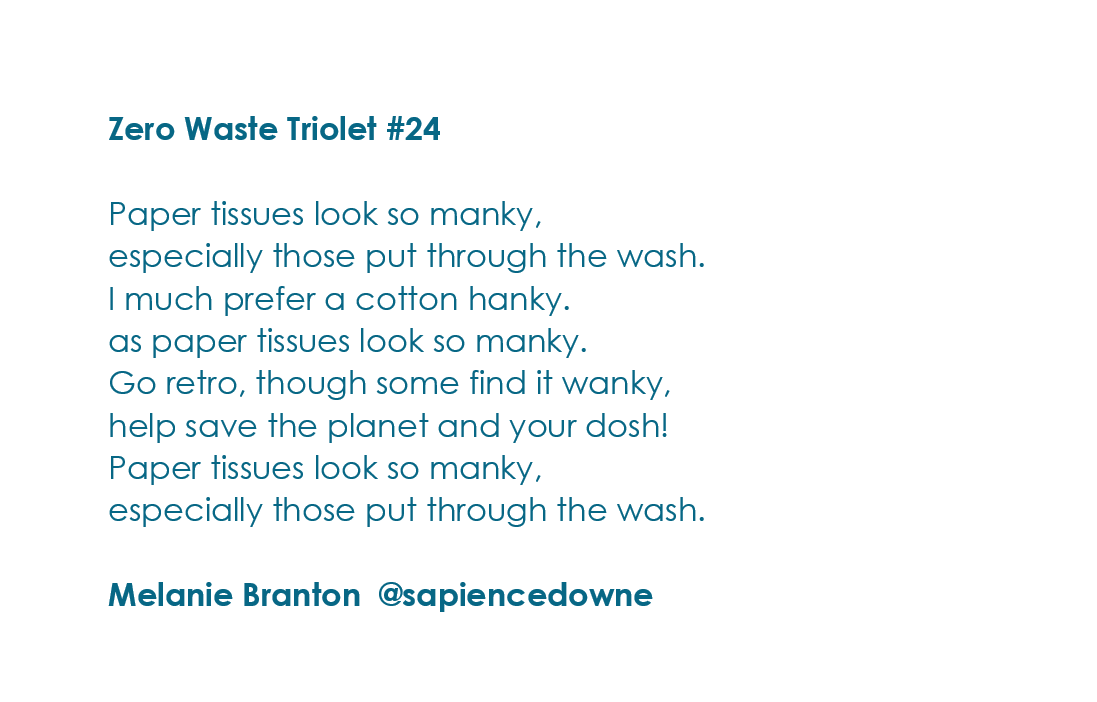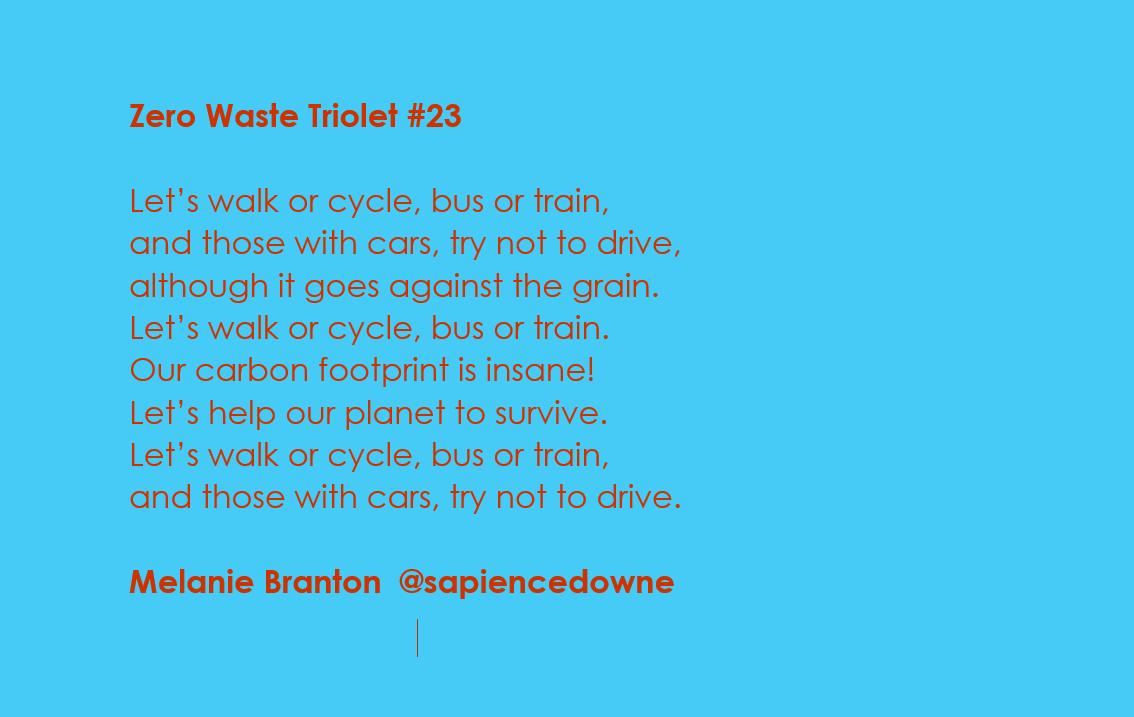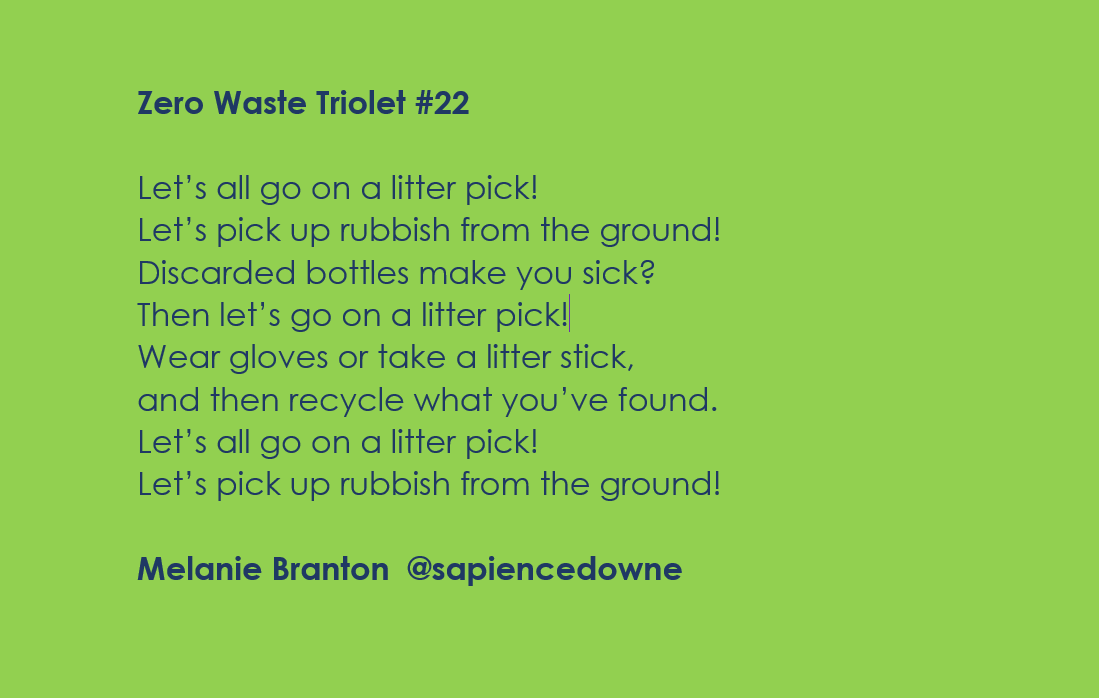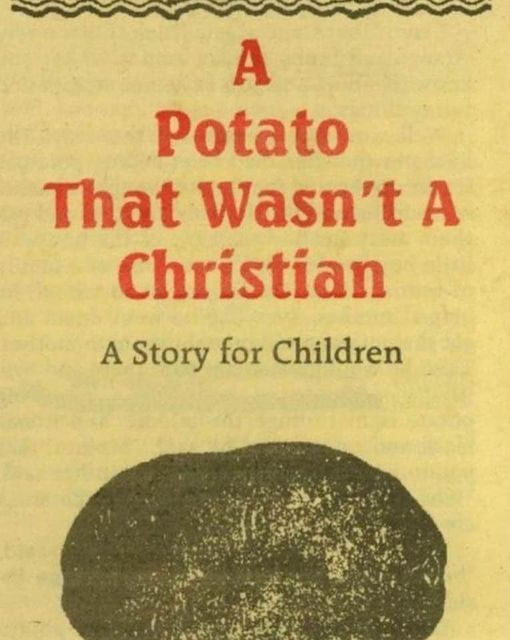
Melanie Branton
@sapiencedowne
Poet, published by Burning Eye and Oversteps. She/her or they/them.
ID:21120708
http://melaniebranton.wordpress.com 17-02-2009 19:30:34
8,6K Tweets
1,1K Followers
984 Following











Helen Sheppard Hannah M. Teasdale John Sebastian LV55 Melanie Branton This will be an night to remember
Join us...😊 ❤️
